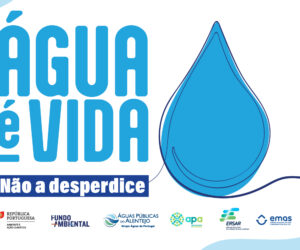 Soil quality, climate and vegetation were parameters included in the study by Universidade Nova de Lisboa. 94% of the territory of Baixo Alentejo is “susceptible to desertification”.
Soil quality, climate and vegetation were parameters included in the study by Universidade Nova de Lisboa. 94% of the territory of Baixo Alentejo is “susceptible to desertification”.
Near 94% of the Baixo Alentejo territory “is susceptible to desertification” due to climate change and the intensive use of soils, reveals a study presented this Friday, in Beja, from the New University of Lisbon.
We arrived at this result through a system of indicators that takes into account a series of parameters, like soil quality, climate and vegetation, explained to Lusa agency Maria José Roxo, one of the study's authors.
According to research, "nearly 94% da NUTS [Nomenclature of Territorial Units for Statistical Purposes] Lower Alentejo is susceptible to desertification”.
It's at Mértola region even registers 96% susceptibility to this phenomenon", highlights the study, carried out by a team from the Faculty of Social and Human Sciences of Universidade Nova de Lisboa (NEW FCSH).
The researchers also reveal that, na NUTS Baixo Alentejo, covering 13 of 14 municipalities in the district of Beja (the exception is that of Odemira), 38% of the territory hascritical susceptibility to desertification, 35% very high and 21% elevated".
According to Maria Jose Roxo, in Baixo Alentejo there has been, in the last years, “a very large dynamic of soil modifications, with intensive and super-intensive crops or, in the municipalities of Mértola and Serpa, the introduction of cattle.
The NOVA FCSH researcher also explained that the susceptibility of Baixo Alentejo to desertification is related, on the one hand, with the “climate change” of recent years, with “much higher temperatures and much more intense rainfall, that cause soil erosion.
On the other hand, continued, and with regard to agricultural production, in many areas “things are not being done as they should be”.
I am not against olive groves, almond or other intensive crops, but you have to know how to do it”, warned.
There are “soil dehydration problems inherited from the Estado Novo cereal campaigns and what we are doing at the moment is to put the territory in monoculture and that is again a mistake”, stressed the researcher.
To mitigate these problems, Maria José Roxo pointed out “two crucial measures”.
One of them has to do with the need to conserve soil and water., to be more resilient to droughts and aridity”, He explained, adding that this is done “with very well-known techniques, as direct seeding, plow on contour lines or leave, in intensive crops, lawns between the rows of trees”.
Parallel to this, changes are needed in the Common Agricultural Policy (PAC), that arrives in Portugal “very formatted in relation to what Northern Europe is and the characteristics of other countries”.
The CAP must take into account our [de Portugal] specificities and, that is why, politicians have to come more to the ground”, concluded.
The NOVA FCSH study was released this Friday in Cabeça Gorda, in Beja county, at the presentation session of the REA Alentejo project, which aims to “create a replicable model that allows restoring agricultural and forestry productivity in the semi-arid areas of southeastern Portugal”.
The initiative is promoted by the Mértola Heritage Defense Association (ADPM), in partnership with several academic organizations, governmental and local.
News: News handler/Observador/Lusa

























